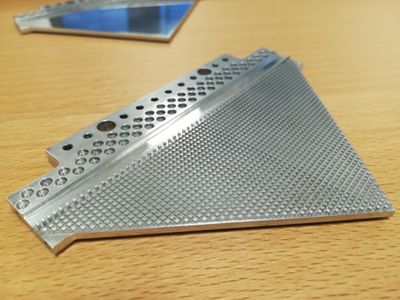antennteori, fysikalisk optik, mikrovågsteknik, avancerade antenner, metamaterial.
FEI3204 Antennteori, doktorandkurs I 8,0 hp

Information per kursomgång
Information för VT 2026 Start 2026-03-16 programstuderande
- Studielokalisering
KTH Campus
- Varaktighet
- 2026-03-16 - 2026-06-01
- Perioder
VT 2026: P4 (8 hp)
- Studietakt
50%
- Anmälningskod
10843
- Undervisningsform
Normal Dagtid
- Undervisningsspråk
Engelska
- Kurs-PM
- Kurs-PM är inte publicerat
- Antal platser
Ingen platsbegränsning
- Målgrupp
- Ingen information tillagd
- Planerade schemamoduler
- [object Object]
- Schema
- Schema är inte publicerat
- Del av program
- Ingen information tillagd
Kontakt
Kursplan som PDF
Notera: all information från kursplanen visas i tillgängligt format på denna sida.
Kursplan FEI3204 (VT 2019–)Innehåll och lärandemål
Kursinnehåll
Lärandemål
Efter avslutad kurs ska studenten kunna
• identifiera de viktigaste parametrarna i en kommersiell antenn; kunna förklara betydelsen av var och en av dessa parametrar.
• bestämma de teoretiska begränsningarna hos antenner, speciellt kopplingen mellan deras elektromagnetiska storlek, effektivitet och bandbredd.
• definiera principerna för avancerade antenner som läckande vågantenner, metamaterialantenner, fasstyrda gruppantenner och linsbaserade antenner.
• hålla vetenskapliga diskussioner om antenner, för att identifiera styrkor och begränsningar hos avancerade antenner.
• identifiera de senaste trenderna för forskning i ämnet och betydelsen av denna forskning.
• beskriv antennsystemets miljöpåverkan, inklusive "elektromagnetiska effekter", strömförbrukning och material som används för antennerna.
• identifiera och klassificera antennteknik beroende på deras påverkan i miljön.
• genomföra forskning på antennsystem, som är mer miljövänliga.
Kurslitteratur och förberedelser
Särskild behörighet
Kursen kräver grundläggande kunskaper i elektromagnetism, och det är önskvärt att ha grundläggande kunskaper om radiofrekvensteknik. Studenter som har en civilingenjörsexamen i Telekommunikation, Elektroteknik, Elektronik eller Fysik har förutsättningarna för att läsa denna kurs.
Dessutom är grundläggande kunskaper om antenner och/eller mikrovågsteknik en tillgång. Om studenten redan har passerat masterkursen EI2400 (eller motsvarande antennkurs på något annat universitet institution), har han/hon mycket goda förutsättningar att följa föreläsningarna.
Kurslitteratur
Examination och slutförande
Betygsskala
Examination
- EXA1 - Examination, 8,0 hp, betygsskala: P, F
Examinator beslutar, baserat på rekommendation från KTH:s handläggare av stöd till studenter med funktionsnedsättning, om eventuell anpassad examination för studenter med dokumenterad, varaktig funktionsnedsättning.
Examinator får medge annan examinationsform vid omexamination av enstaka studenter.
När kurs inte längre ges har student möjlighet att examineras under ytterligare två läsår.
I början av kursen väljer studenten ett projekt som handleds av kursansvarig. Kursansvarig föreslår flera olika projekt, och studenterna kan också själva föreslå projekt (i samtycke med kursansvarig).
Alternativt kan studenten välja att inte genomföra ett projekt och att satsa på en tentamen (skriftlig och muntlig), där han/hon måste visa att förståelse uppnåtts av de begrepp som förklaras under kursen.
Övriga krav för slutbetyg
Regelbundna hemuppgifter, inklusive övningar och utveckling av egna skript för simulering. Ett av uppdragen kommer att relateras till miljöfrågor. Studenten måste delta i ett reflektionsseminarium där antennernas miljöpåverkan diskuteras.
Dessutom kommer ett av följande två alternativen att väljas av studenten:
1) Skriftlig och muntlig individuell examination.
2) Färdigställande av en skriftlig rapport och muntlig redovisning av ett föreslaget projekt.
Examinator
Etiskt förhållningssätt
- Vid grupparbete har alla i gruppen ansvar för gruppens arbete.
- Vid examination ska varje student ärligt redovisa hjälp som erhållits och källor som använts.
- Vid muntlig examination ska varje student kunna redogöra för hela uppgiften och hela lösningen.